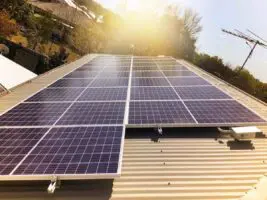Federal energy minister Angus Taylor has indicated he wants an end to the “ad hoc” energy market interventions that he had made a feature of his ministerial career, but is now championing a controversial “capacity” style market that will likely favour fossil fuel generators.
In a speech to an energy conference on Tuesday, Taylor lamented the lack of new investment in “dispatchable generation” in Australia over the past decade.
This is ironic, given Taylor’s own ad-hoc interventions, such as the Underwriting New Generation Investment scheme that was supposed to back coal upgrades and new gas plants and pumped hydro facilities, but has delivered absolutely nothing after nearly three years.
Indeed, many in the energy market, from Energy Security Board boss Kerry Scott, to the Australian Energy Council, and the heads of the major energy incumbents and the developers of new technologies, suggests Taylor’s interventions have held back investment, not encouraged them.
The one project that has receive explicit backing from the government, the 660MW peaking gas generator at Kurri Kurri in the Hunter Valley, has been slammed by critics as not needed, not economic, and will reduce competition rather than increase it.
Even Snowy Hydro wouldn’t, or couldn’t invest its own funds in the project, so Taylor had to promise $600 million of taxpayer money for the proposed new gas generator, which will have to overcome the lack of a gas connection assuming it ever goes ahead.
Taylor entered his ministerial career declaring that there was already too much wind and solar in the grid. In the last two calendar years since his appointment, more than 13GW of large scale wind and solar has been added – a result of the renewable energy target he tried to kill, and increasing corporate demand.
Taylor now claims “this is excellent news” but insists it is creating problems that can only be solved by thermal generation.
“The speed and scale at which variable renewables are coming online is causing disruption on a level that we have never seen before,” Taylor said in his speech.
“Intermittent generation is causing increasing volatility in the wholesale electricity market. This is making the grid more difficult to manage, creating volatile prices, and undermining the retention of less flexible dispatchable capacity.”
Taylor’s solution, which he insists is “not about ideology”, involves new support mechanisms for existing coal generators, and gas which “will inevitably provide part of the answer”.
He outlined his preferred outcomes from the Energy Security Board’s proposed new market design, including the hotly contested idea of a capacity style market.
“This requires strong market signals that both encourage investment in new dispatchable generation to replace our aging thermal generator fleet, and incentivise our existing thermal generators to remain in our market for as long as needed,” Taylor said.
“Two simple changes to the RRO (retailer reliability obligation) – making it ‘always on’ and linking contracts more directly to physical capacity – could together strengthen the signals needed to deliver both reliability and keep prices low.
“As a reformed “Affordability and Reliability Guarantee”, this would shift the contracting requirements from virtual commitments to contracts linked to physical resources. Complemented by removal of the current three- and one-year triggers for RRO contracting, it would step in to replace the weakened investment signals in the energy only market.”
A range of energy experts and analysts have said this proposal is shorthand for yet another subsidy for the fossil fuel fleet, and will not favour the new technologies that must be brought into the market to support the transition to renewables.
Tim Nelson, formerly of AGL and the Australian Energy Market Commission, and now of Infigen Energy, wrote in this piece that the physical RRO would be bad for the consumers, and climate efforts: Paying Australia’s coal-fired power stations to stay open longer is bad for consumers and the planet
Others agree.
There is concern that under the new “national cabinet” convention that Taylor could wield considerable influence over the shape of the outcome of the ESB’s market recommendations.
But it appears that state energy ministers will have some sway over the outcome, if they can come to some agreement, representatives from the department of energy told a Senate Estimates hearing on Tuesday.










